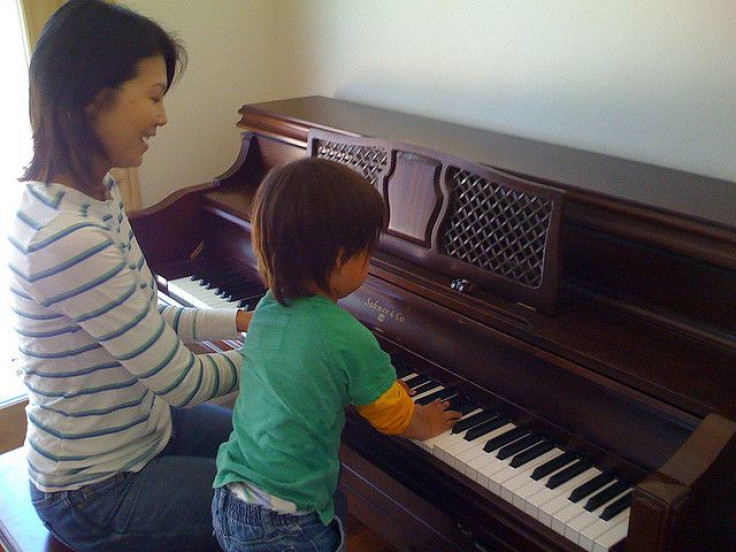Arts And Crafts In Childhood Could Lead To Future Success; Involvement With Music, Architecture Led to Owning Companies And Patents

It’s the dream of many parents out there: that their kids grow up to own a successful business or to become successful inventors. Parenting is already difficult, and many may watch their child participate in piano lessons or art classes without knowing if there will be any long-term benefits with regards to their child’s future success. But there’s hope, because according to a new study, children who participate in these activities before the age of 14 were more likely to become successful business owners and inventors.
Researchers from Michigan State University looked at a group Honors College graduates from between 1990 and 1995, and found that those who majored in science, technology, engineering, or mathematics — a set of disciplines known as STEM — and owned businesses or patents, were exposed to the arts as children almost eight times more than the general public.
“If you started as a young child and continued in your adult years, you’re more likely to be an inventor as measured by the number of patents generated, businesses formed, or articles published, and that was something we were surprised to discover,” Rex LaMore, director of the Center for Community and Economic Development at the University, said in a statement.
When looking at specific activities, they found that 93 percent of the STEM graduates practiced music at some point in their lives, compared to only 34 percent of average adults. They also found that engagement with metal work and electronics led to a 42 percent higher chance of owning a patent as an adult, while knowing about photography led to a 30 percent higher chance of owning one. Getting involved with architecture led to an 87.5 percent higher chance of owning a company.
The majority of graduates accredited their innovative prowess to their knowledge of arts and crafts. They reported using artistic skills, such as analogies, playing, intuition, and imagination to solve problems related to their craft.
“The skills you learn from taking things apart and putting them back together translate into how you look at a product and how it can be improved,” Eileen Roraback, of the university’s Center for Integrative Studies in the Arts and Humanities, said in the statement. “And there’s creative writing. In our study, a biologist working in the cancer field, who created a business, said her writing skills helped her to write business plans and win competitions.”
The study’s findings could have implications for job creation and economic growth, “so we better think about how we support artistic capacity, as well as science and math activity,” La More said in the statement.
Previous research has shown that the younger a child learns to understand music — and continuously practice it — the more plasticity their brains will have as adults. Studies have also found that children whose math and reading skills were strong at seven years old were also more likely to be economically successful. Being just one reading level higher at seven years old was associated with having a $7,750 increase in income at 42.
Source: Fernandez L, VanDyke M, LaMore R, et al. Arts and Crafts: Critical to Economic Innovation. Economic Development Quarterly. 2013.



























